
Como Cuidar da Exótica Echeveria Can Can! GPA Brasil
Except for some hybrids, most varieties of Echeveria are cold hardy and can tolerate frost. They are also well adapted to high temperatures. But the best temperatures for optimal growth of Echeveria plants are at 65 to 80 o F during spring and summer and 55 to 75 o F during fall and winter (3). As for humidity requirements, Echeveria plants.

Echeveria can can Variegated
Echeveria 'Can Can' is a succulent that forms a large rosette of stout, fleshy leaves. The rosette grows up to 14 inches (35 cm) in diameter. Leaves change the color from copper-green to brown-violet when older. They are covered with a powdery bloom and have red ruffled margins. Flowers are reddish-pink and usually appear in summer.

Echeveria 'Can Can' 10 cm. Crassulaceae Giromagi vendita piante grasse
Echeveria can be paired with various other plants in a garden setting, especially those that share similar care needs. Here are a few suggestions for companion plants: Other Succulents: Echeveria pairs well with other succulents that have similar sunlight and water requirements. Examples include Sedum, Aloe, Haworthia, and Graptopetalum.

Echeveria can can Succulent
Quick Facts Botanical name: Echeveria Crassulaceae Height: 12 inches (31 cm.) Spread: 12 inches (31 cm.) Sun exposure: Full sun Soil requirements: Rocky, sandy, well-draining Hardiness zones: 8-11 When to plant: Spring Echeveria Care Echeveria care is similar to that of other succulents. There are 150 cultivated varieties of this plant.
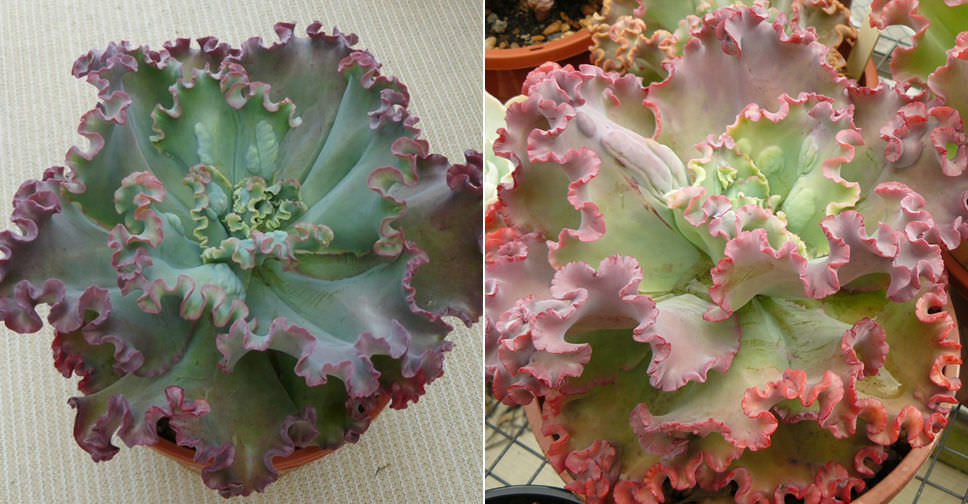
Echeveria 'Can Can' World of Succulents
Portulacaria Senecio About Echeverias Here you'll find expert advice to help you grow echeverias perfectly, with a gallery of 150+ beautiful, notable species and cultivars. Learn about the plants' native habitat, optimal care, light and water requirements, flowering, soil, fertilizer, pests, and propagation. Origin
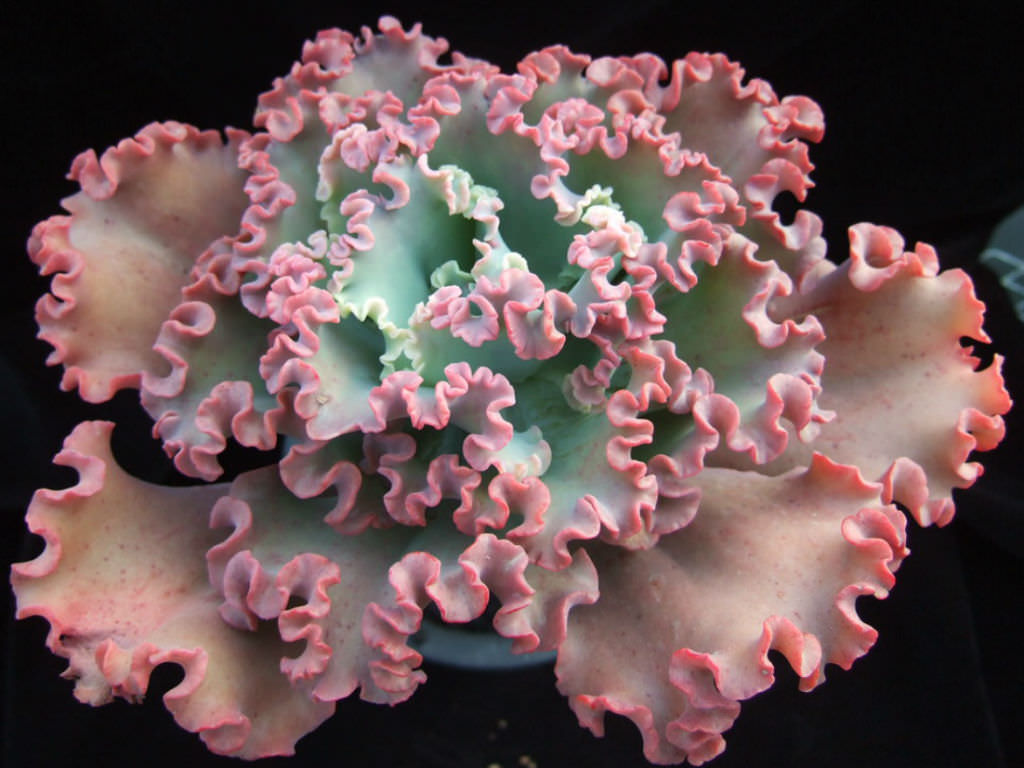
Echeveria 'Can Can' World of Succulents
With over 150 species to choose from, Echeveria (often called Hens and Chicks) are among the most popular succulents, thanks to their delightful rosettes that can reach up to 2 to 6-inches across on short stems with striking water-storing leaves.

Echeveria can can Variegated
Echeveria includes nearly 200 species of houseplants and myriads of hybrids.. This plant can be propagated vegetatively in several ways. Offsets (small rosettes that form at the base of the mother plant) can be detached and placed in very well drained soil and it will root. You could also cut off the crown leaving a short stem that can be.

Echeveria 'CanCan' Winter colors Manue64 Flickr
The only way forward is to ensure the plant has enough light, and then behead the Echeveria to give it a fresh start.. Move the plant to where it has more light.; Eventually, purchase supplemental lighting (grow lights) for succulents.; Once the problem of your echeveria lacking light is solved, you can behead the succulent:. Cut the Echeveria stem just below the head (about ½ inch or 1½ cm.

Echeveria 'Can Can' 多肉植物特徵 康康 YouTube
Beautiful, Colorful & Easy To Maintain. Grow Colorful Echeveria In Your Garden! Browse Our Extensive Selection Of Different Succulents Plants, Perfect For Any Occasion!
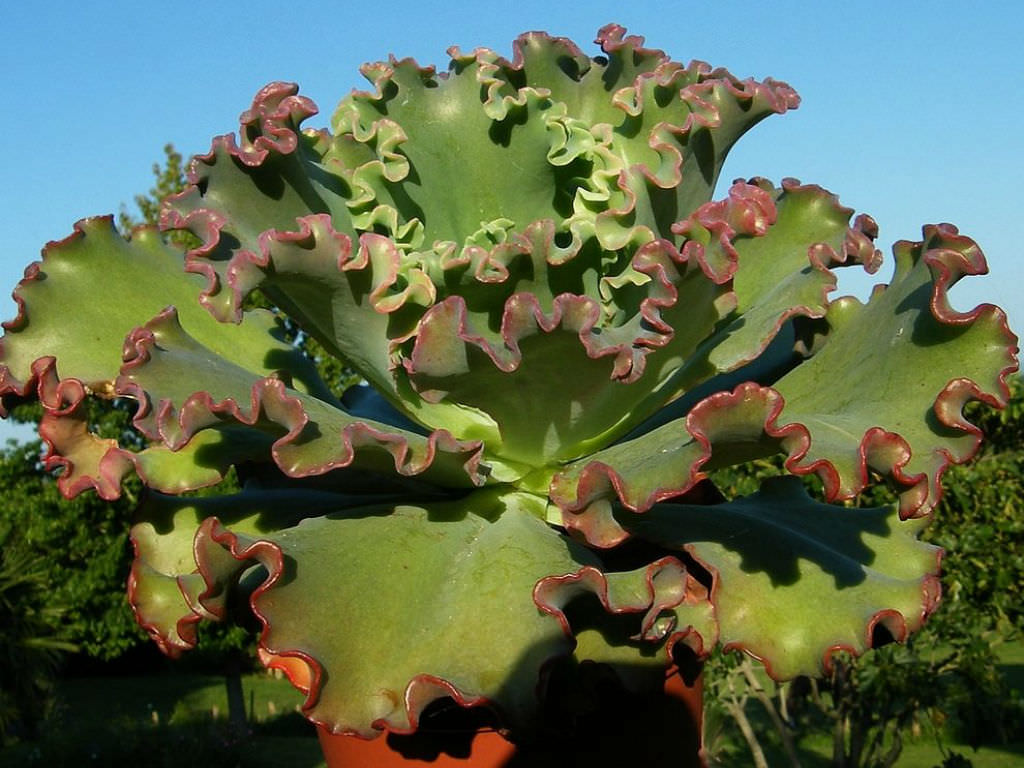
Echeveria 'Can Can' World of Succulents
July 24, 2023 by Lorna Kring Echeveria spp. Colorful and ornamental, easy-care Echeveria species, hybrids, and cultivars are flowering succulents that thrive on neglect and arid conditions in the garden. They can be raised as houseplants as well.

Echeveria 'Can Can' (4 inch) Earth&Jungle
Water Requirements: Number 1 rule: do not overwater your echeveria and don't leave it with "wet feet". Too much water will turn echeveria leaves soft, yellow and wilted, and will eventually kill the plant. Water your echeveria rarely, but thoroughly. Soak the soil completely and remove the excess water from the saucer.

Echeveria can can Variegated
Echeveria 'Can Can' is a succulent that forms a large rosette of stout, fleshy leaves. The rosette grows up to 14 inches (35 cm) in… View Plant Details Echeveria 'Can Can' with a plant profile, including common names, scientific classification, brief description, origin, care tips, and photos.
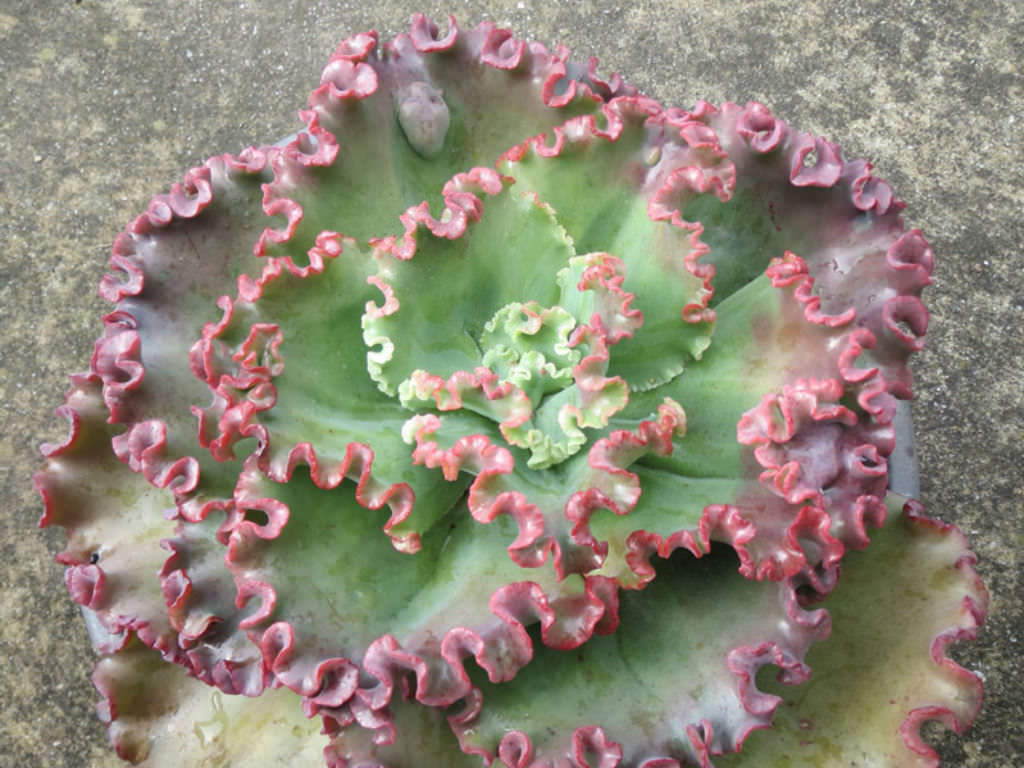
Echeveria 'Can Can' World of Succulents
Leaves. Most Echeveria s can be easily grown from leaf cuttings. To propagate a leaf cutting, gently twist the leaf from the stem. Allow the leaf to callus for a few days before placing it in well-draining soil. Always take at least two leaves because not every leaf you try to propagate will grow a new plant.

Echeveria can can Variegated
Echeveria Can Can Sun: full sun to partial shade Water: Typical water needs for a succulent Temperature: Zone 9b from 25° F to 30° F (-3.9° C to -1.1° C) to Zone 11b from 45° F to 50° F (7.2° C to 10° C) Winter Survival: Not cold hardy Propagation: stem cuttings, seeds Flower: in the summer Flower Type: pink

Echeveria can can Succulent
Silver Spoons Echeveria Echeveria runyonii. Size: 4 inches tall and 4 to 6 inches wide. Color: Blue-grey and pink foliage, grey flower stems and bracts, coral pink and orange flowers. This fast grower has elongated spoon-shaped leaves that can reach 3 inches long. Flowers appear on 8-inch stems from late summer into fall.
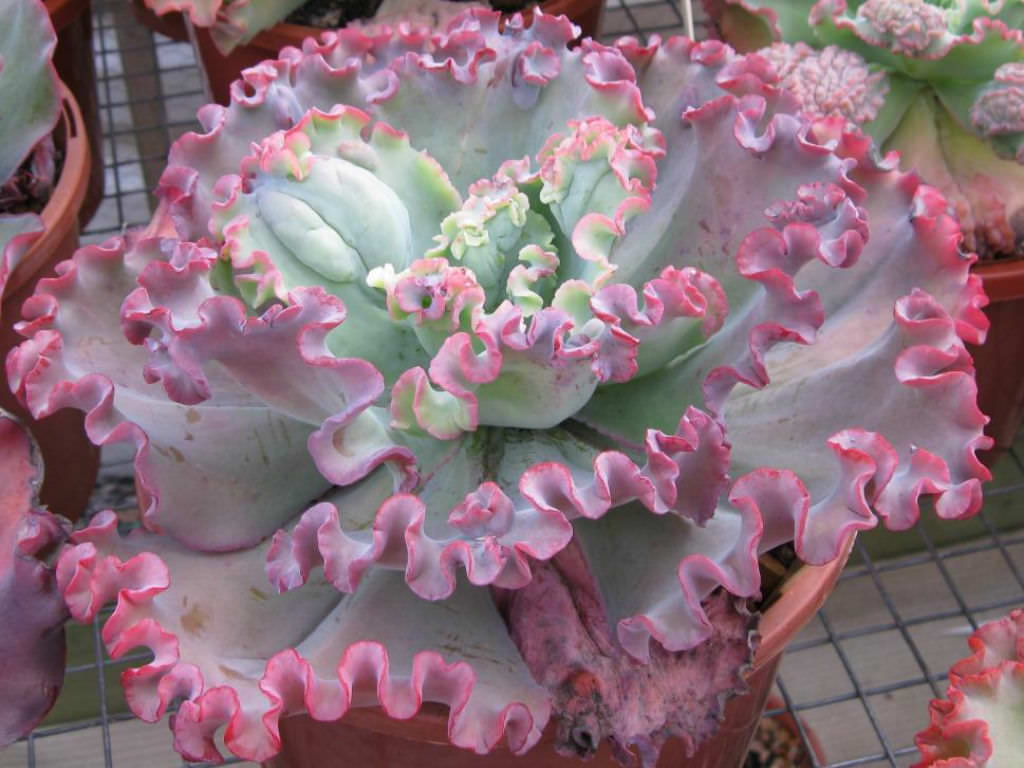
Echeveria 'Can Can' World of Succulents
Echeveria Cante is best known to be a beautiful looking succulent. As the plant matures you can expect it to reach around 30 cm (12″) in diameter. The plant has beautiful looking fleshy purple to light purple leaves that have dark red edges. When it flowers you can expect it to produce yellow to orange flowers. Scientific Classification